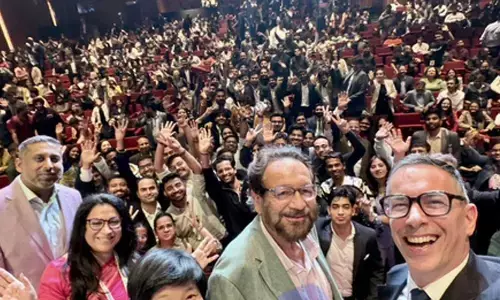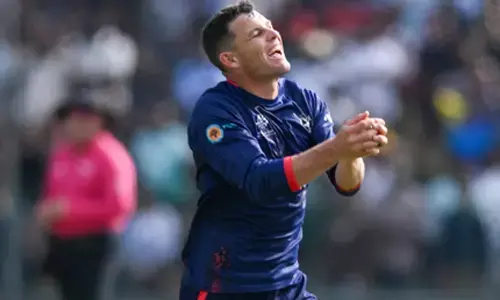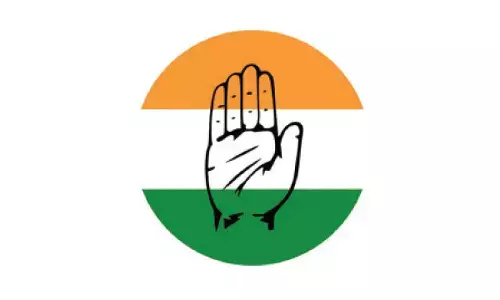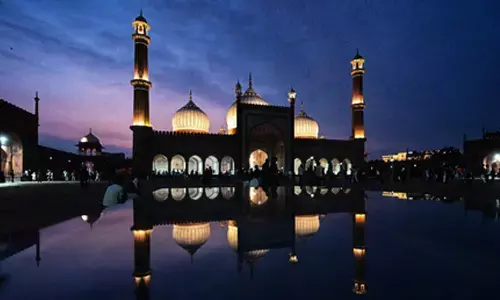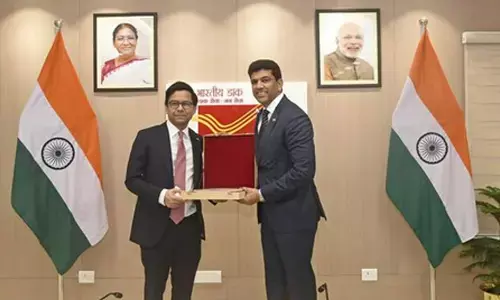Kargil Vijay Diwas 2024: Honouring Brave Heroes
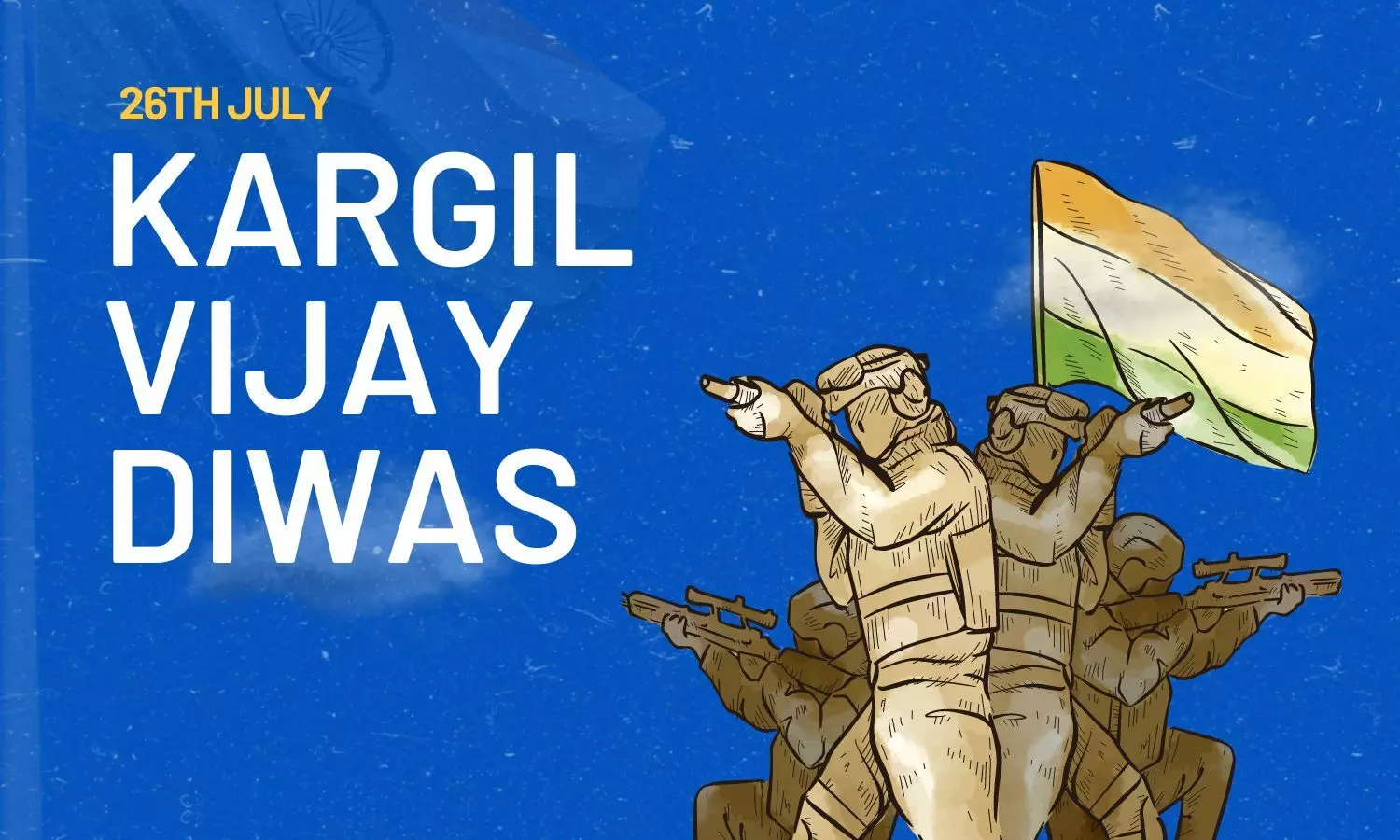
Celebrate the 25th anniversary of Kargil Vijay Diwas by honouring the extraordinary bravery and sacrifice of Indian soldiers like Captain Vikram Batra and Grenadier Yogendra Singh Yadav.
Kargil Vijay Diwas is a day of immense pride and reverence in India, observed annually on July 26th to commemorate the nation's victory in the Kargil War of 1999. This conflict, fought between India and Pakistan in the treacherous terrain of the Kargil district in Jammu and Kashmir, showcased the valour and sacrifice of the Indian Armed Forces. On this 25th anniversary of Kargil Vijay Diwas, we pay homage to the gallant soldiers who laid down their lives to protect our nation. Among them, several heroes stand out for their extraordinary bravery and selfless dedication.
Captain Vikram Batra
Captain Vikram Batra, known as the "Sher Shah" of the Indian Army, is one of the most celebrated heroes of the Kargil War. Serving in the 13th battalion of the Jammu and Kashmir Rifles, Captain Batra's fearless leadership during the capture of Point 5140 and later Point 4875 was instrumental in India's victory. His famous words, "Yeh dil maange more," became a rallying cry for the nation. Despite being critically injured, he continued to lead his men and ultimately made the supreme sacrifice. His bravery earned him the Param Vir Chakra, India’s highest military honour.
Captain Batra's mission to capture Point 4875, also known as the 'Tiger Hill', was marked by his exceptional courage and tactical acumen. The terrain was hostile, with sheer cliffs and enemy bunkers entrenched in strong defensive positions. Leading from the front, Captain Batra and his team navigated the treacherous landscape under intense enemy fire. His actions on the battlefield not only demoralised the enemy but also inspired his men to push forward, despite the heavy odds. His ultimate sacrifice on July 7, 1999, is remembered as a defining moment in the Kargil War, and his legacy continues to inspire the nation.
Grenadier Yogendra Singh Yadav
Grenadier Yogendra Singh Yadav, a member of the 18th Grenadiers, displayed remarkable courage during the assault on Tiger Hill. Despite being severely injured by multiple bullets, he continued to scale the rocky cliff and destroy enemy bunkers, which played a crucial role in India's success. His indomitable spirit and unwavering determination earned him the Param Vir Chakra, making him one of the youngest recipients of this prestigious award.
Yadav's role in the war was pivotal during the night of July 3, 1999, when his platoon was assigned the task of capturing three strategic bunkers on Tiger Hill. As the lead scout, Yadav was responsible for laying a rope for his comrades to follow. Under heavy enemy fire, he was hit by bullets but continued his ascent. Upon reaching the top, despite his injuries, he neutralised the enemy bunkers, facilitating the platoon's advance and ultimate victory. His selfless act of bravery ensured the success of the mission, significantly impacting the outcome of the war.
Captain Manoj Kumar Pandey
Captain Manoj Kumar Pandey, serving with the 1/11 Gorkha Rifles, led a daring mission to capture Jubar Top in the Batalik sector. His gallant actions during the attack, despite being severely wounded, inspired his troops to achieve a decisive victory. Captain Pandey's leadership and sacrifice were pivotal in the battle, and he was posthumously awarded the Param Vir Chakra for his valour.
On the night of July 3, 1999, Captain Pandey led his men in a fierce assault against well-entrenched enemy positions. Displaying extraordinary leadership, he motivated his men by charging through a hail of bullets and grenades. Even after being hit multiple times, he continued to fight, clearing enemy positions with grenades and close-quarters combat. His bravery and determination were crucial in capturing the objective, but he succumbed to his injuries, leaving behind a legacy of valour and selflessness.
Lieutenant Balwan Singh
Lieutenant Balwan Singh of the 18th Grenadiers was a key figure in the capture of Tiger Hill, a strategic peak that was fiercely defended by the enemy. Leading a group of Ghatak commandos, he demonstrated exemplary bravery by climbing steep, icy slopes under heavy enemy fire. His determination and tactical acumen were crucial in securing this critical objective, earning him the Maha Vir Chakra.
On July 4, 1999, Lieutenant Singh's mission involved scaling the rocky cliffs of Tiger Hill under the cover of darkness to surprise the enemy. The ascent was perilous, with the soldiers having to navigate steep and icy slopes while carrying heavy equipment. Despite these challenges and continuous enemy fire, Lieutenant Singh led his team to the summit, where they engaged in intense close combat. His leadership and tactical prowess resulted in the successful capture of the peak, a turning point in the Kargil War.
Major Rajesh Singh Adhikari
Major Rajesh Singh Adhikari of the 18th Grenadiers displayed extraordinary heroism during the recapture of Tololing. He led his men in a fierce assault, navigating treacherous terrain under intense enemy fire. Major Adhikari's leadership and courage were instrumental in securing a strategic victory, and he was posthumously awarded the Maha Vir Chakra for his bravery.
Major Adhikari's mission on June 1, 1999, involved assaulting heavily fortified enemy positions in the Tololing complex. Under his command, the troops advanced through difficult mountainous terrain, facing continuous enemy fire. Major Adhikari personally led the charge, displaying remarkable courage and tactical skill. Despite sustaining severe injuries, he continued to inspire and lead his men until the objective was secured. His actions were critical in gaining control of Tololing, a strategic position that paved the way for further operations.
Rifleman Sanjay Kumar
Rifleman Sanjay Kumar of the 13th Jammu and Kashmir Rifles showcased unparalleled bravery during the capture of Area Flat Top. Despite being injured, he charged at enemy bunkers and neutralised them single-handedly. His fearless actions significantly contributed to the success of the mission, earning him the Param Vir Chakra.
On July 4, 1999, Rifleman Kumar was part of an assault team tasked with capturing Area Flat Top. Under heavy enemy fire, he volunteered to lead the charge. Despite being hit by bullets in his chest and forearm, he continued to advance, taking out multiple enemy bunkers with hand grenades. His relentless assault and refusal to retreat, even while severely wounded, led to the capture of the objective and inspired his comrades to follow suit. His actions exemplified extraordinary valour and dedication to duty.
Major Vivek Gupta
Major Vivek Gupta of the 2nd Rajputana Rifles was a pivotal figure in the battle for Tololing. His strategic planning and courageous leadership under heavy enemy fire were crucial in securing this key objective. Major Gupta's sacrifice was instrumental in the Kargil victory, and he was posthumously awarded the Maha Vir Chakra.
On June 13, 1999, Major Gupta led his company in a daring assault on Tololing's fortified enemy positions. Facing intense artillery and small arms fire, he inspired his men to advance and engage the enemy in close combat. Major Gupta's tactical acumen and bravery were instrumental in breaching the enemy's defences. Despite being severely wounded, he continued to lead his men until he succumbed to his injuries. His sacrifice and leadership were pivotal in securing a crucial victory.
Captain N Kenguruse
Captain Neikezhakuo Kenguruse, serving with the 2nd Rajputana Rifles, exhibited exceptional bravery during the attack on Black Rock in the Drass sector. Despite being severely injured, he continued to lead his men and neutralise enemy positions. His indomitable spirit and dedication earned him the Maha Vir Chakra after his demise.
On June 28, 1999, Captain Kenguruse's mission involved clearing enemy positions on a steep and rocky terrain. Under heavy enemy fire, he led his men with unwavering determination. Despite being hit by a bullet in the abdomen, he continued to press forward, personally destroying enemy bunkers with grenades. His selfless actions and leadership were crucial in the success of the mission, and he laid down his life in the process, epitomising the highest standards of bravery and sacrifice.
Lt. Keishing Clifford Nongrum
Lieutenant Keishing Clifford Nongrum of the 12th Jammu and Kashmir Light Infantry demonstrated extraordinary courage during the capture of Point 4812. Despite facing intense enemy fire, he led his men to victory with unmatched determination. His sacrifice and bravery were recognised with the Maha Vir Chakra posthumously.
On July 1, 1999, Lieutenant Nongrum led his platoon in a daring assault on well-fortified enemy positions. The enemy held the advantage of higher ground and had fortified their positions with heavy weapons. Despite this, Lieutenant Nongrum led his men through heavy fire, personally attacking enemy bunkers and neutralising them. His fearless leadership and determination played a critical role in the success of the mission, but he was fatally wounded in the process. His sacrifice ensured the capture of the objective, contributing significantly to the overall victory.
Naik Digendra Kumar
Naik Digendra Kumar of the 2nd Rajputana Rifles played a crucial role in the capture of Tololing. His leadership and bravery in the face of heavy enemy fire were instrumental in the success of the mission. He was awarded the Maha Vir Chakra for his exceptional valour and dedication.
On the night of June 13, 1999, he led his men through rugged terrain under heavy enemy fire, displaying extraordinary courage and tactical skill. Despite being wounded, he continued to fight, inspiring his comrades and breaching heavily fortified enemy defences. His fearless actions in clearing enemy bunkers and engaging in close-quarters combat were instrumental in maintaining the momentum of the attack.
Captain Amol Kalia
Captain Amol Kalia of the 1/11 Gorkha Rifles showed extraordinary bravery during the battle of Khalubar, leading his men under intense enemy fire to secure strategic positions and inflict significant damage on the enemy. Despite the challenging terrain and well-entrenched enemy defences, Captain Kalia's leadership was pivotal to the mission's success, earning him a posthumous Vir Chakra.
On July 6, 1999, Captain Kalia led his troops through heavy artillery and small arms fire, personally engaging enemy positions with grenades and close-quarters combat. Severely wounded during the final phase of the attack, he refused evacuation and continued to lead his men, ensuring the capture of critical positions. His determination and tactical skill were crucial in overcoming enemy defences, and his heroic actions significantly contributed to the overall victory in the Kargil War.
The Legacy of Kargil Vijay Diwas
The Kargil War was a defining moment in Indian military history, showcasing the indomitable spirit and unparalleled bravery of the Indian Armed Forces. The heroes of Kargil Vijay Diwas symbolise the highest standards of courage, sacrifice, and patriotism. Their legacy continues to inspire generations of Indians and serves as a reminder of the immense sacrifices made to safeguard the nation's sovereignty.
As we observe Kargil Vijay Diwas 2024, it is imperative to remember and honour the brave soldiers who laid down their lives in the line of duty. Their stories of heroism and sacrifice are etched in the annals of history and serve as a beacon of inspiration for all. The nation owes a debt of gratitude to these heroes, whose valour and dedication ensured the victory and integrity of India.



